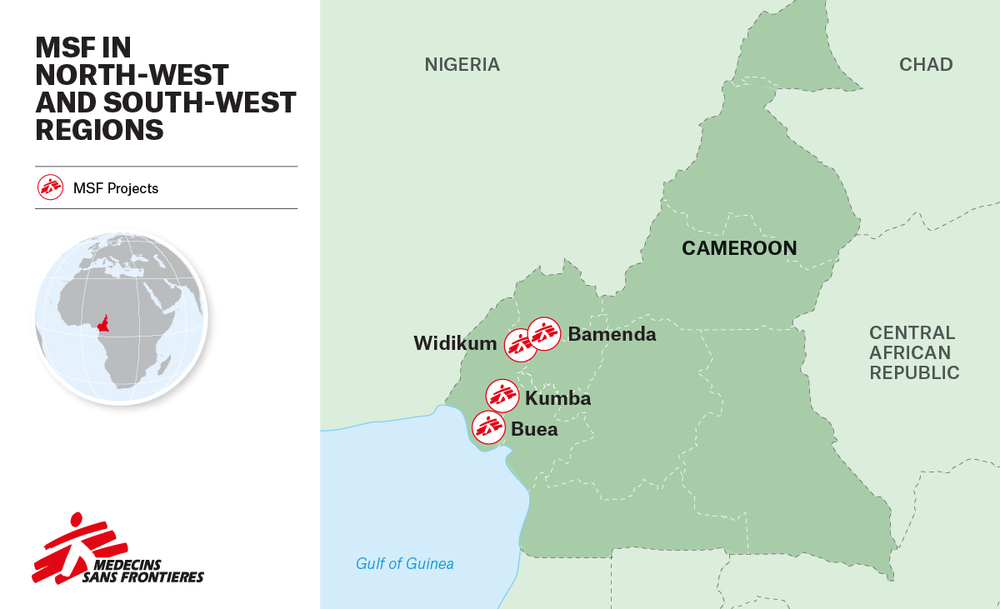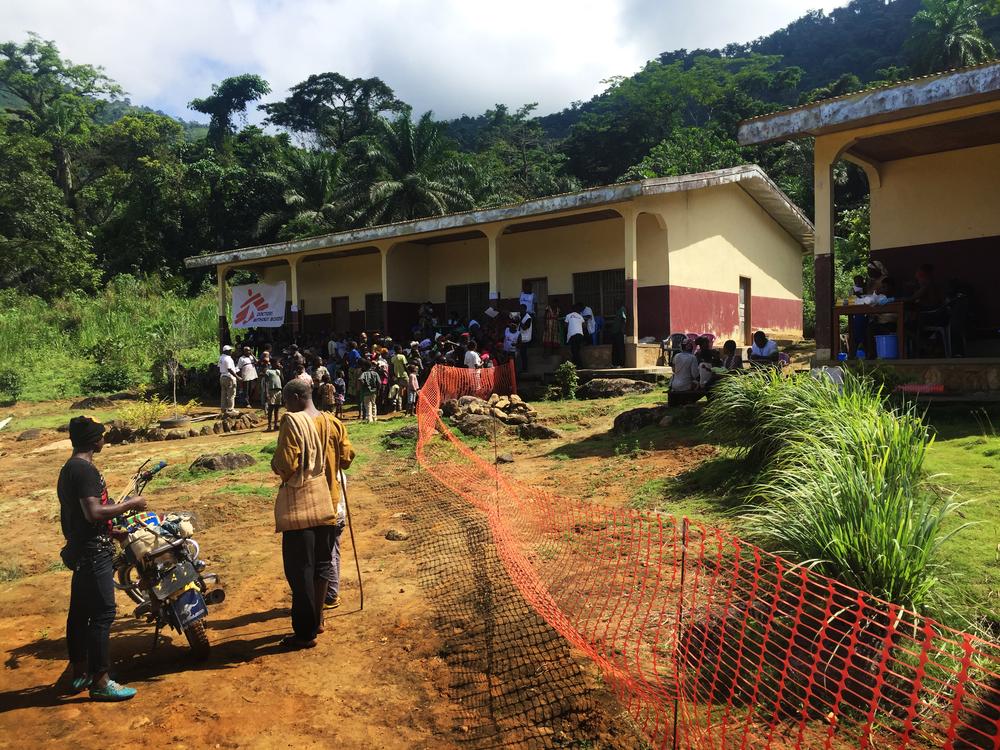Violence between government forces and separatist non-state armed groups from the English-speaking community has escalated sharply, forcing hundreds of thousands of people from their homes and leaving them in dire need of humanitarian assistance.
Here are five things to know about how violence is affecting people in North-West and South-West Cameroon:
1. Large numbers of people have been displaced
According to UN OCHA, since 2016, growing violence between English-speaking separatists and central government forces in North-West and South-West Cameroon has uprooted 530,000 people from their homes. Facing attacks, physical and sexual violence, threats, kidnappings, killings, and the burning of villages, many people have fled to rural areas where they live in extremely poor conditions in makeshift shelters in the forest or bush. Others have been forced to relocate to other cities, where they live on the street, or with host families in overcrowded and unsanitary settings.
2. People are extremely vulnerable
The displacement caused by the violence has triggered significant humanitarian needs across both regions, leaving people in dire need of assistance. Severe insecurity and restrictions on movement prevent many people from accessing farms and markets, and many also struggle to access clean water for drinking, sanitation, and hygiene. Poor living conditions, the loss of livelihoods, and the lack of adequate food and water, combine to render people more vulnerable and place them at increased risk of disease. On top of this, many people have also experienced traumatic events. MSF teams have treated 280 people affected by violence.
The violence is also restricting the population´s access to healthcare, hampering them from reaching medical centres; interrupting supplies of drugs and equipment; causing medical staff to flee; and forcing health facilities to close.
3. MSF is responding to the crisis – but humanitarian needs are huge

Our teams also manage the care of emergency patients, particularly pregnant women and children under the age of five and donate medicines and supplies. In addition, we train community health workers to diagnose and treat the most-commonly observed diseases, such as malaria. In the 10 months leading up to March 2019, our teams conducted more than 2,000 emergency room consultations, 32,800 outpatient consultations, and treated 14,500 people for malaria. We have also provided psychosocial support to 1,280 patients.
As one of very few organisations operating in the rural areas of North-West and South-West Regions, we focus on providing medical care to displaced people who are most in need of our support, in the areas which we are able to access. While we are working to assist as many people as possible, as violence continues and the humanitarian situation worsens, needs are far larger than the response currently being provided.
4. In some areas, people have not received any humanitarian aid
Due to severe insecurity and restrictions on movement, parts of the North-West and South-West Regions of Cameroon are totally inaccessible for international aid organisations. Only a few national aid organisations have occasional access. This means that large numbers of people who have been displaced into rural areas have not received any aid at all.
While our teams have not been able to reach some areas and therefore cannot quantify the precise extent of the situation, it can be expected that large numbers of people have significant humanitarian and medical needs that are not currently being met. As the violence continues and international humanitarian access remains challenging the vulnerability of these people is likely to increase.
5. Medical care is under attack
Attacks against medical facilities and health workers are part of the violence in North-West and South-West Cameroon. At first these attacks were indiscriminate, but as the violence has continued, they have become intentional. Hospitals are deliberately being attacked or occupied, ambulances are being blocked, and medical personnel are being threatened, abducted, subjected to violence, or killed.
All parties involved in the conflict have been responsible for disrupting healthcare services and access, thereby depriving populations of medical attention often when they need it the most. Over the past year, our teams have documented 61 attacks on healthcare facilities and 39 attacks against medical professionals. The medical mission needs to be respected by government forces and non-state armed groups, so that vulnerable people can continue to receive the medical care they require.
